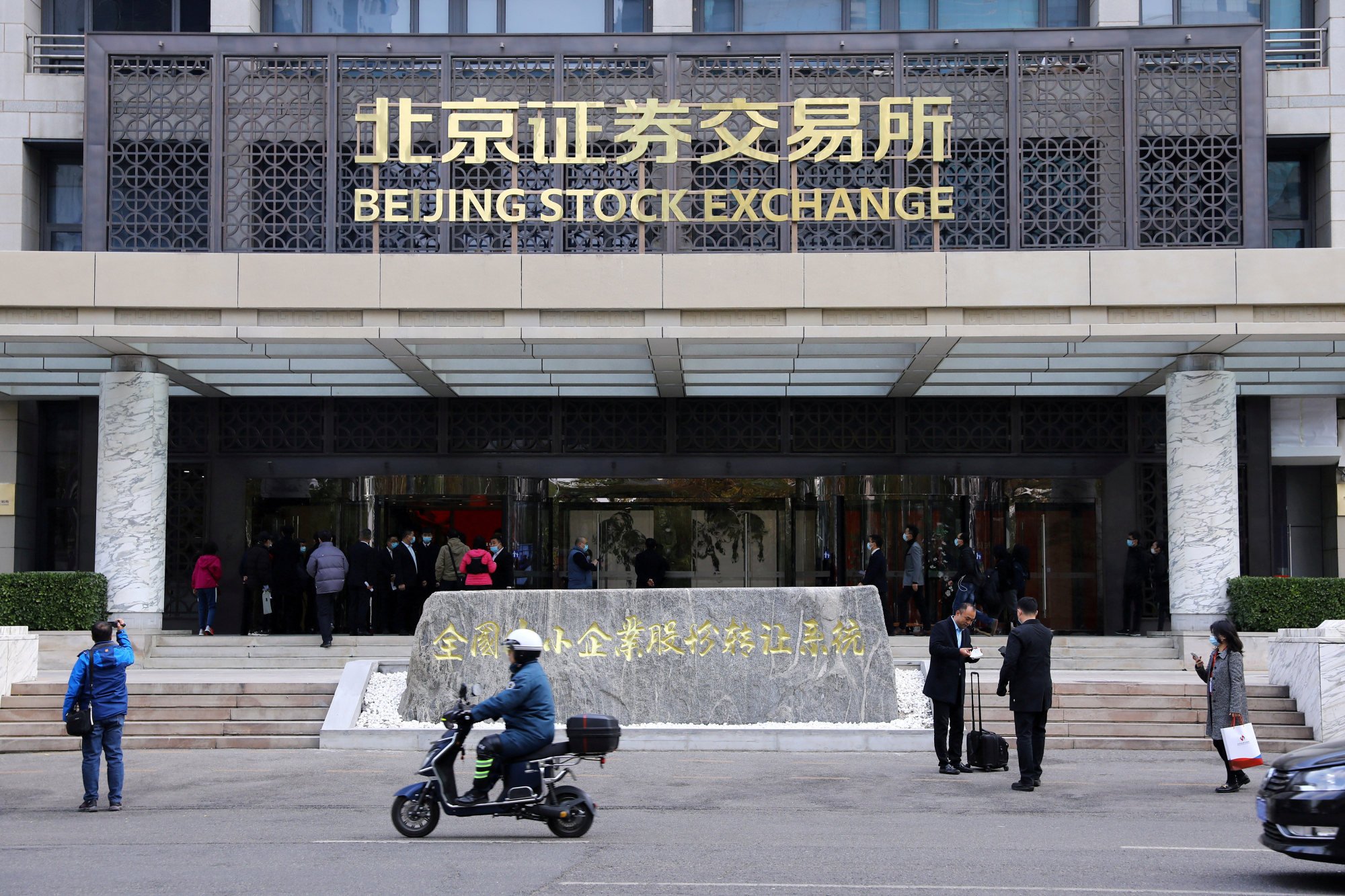Beijing exchange’s IPO volumes weather China’s stock market storm as investors bet on policy tailwinds
- Beijing Stock Exchange saw a 13 per cent drop in IPO volumes versus the near halving at the Shanghai bourse and with Shenzhen market volumes down a third from 2022
- The China Securities Regulatory Commission has issued guidelines to develop the Beijing exchange into a world-class bourse by adding more good-quality listings
Initial public offerings (IPO) volumes at the Beijing Stock Exchange (BSE) have suffered the least despite authorities restricting new share sales on the three mainland bourses this year, reflecting investor confidence in government support for the country’s newest and best performing equity market.
The BSE, which mainly attracts high-end manufacturing start-ups, saw 74 companies raising 13.7 billion yuan (US$1.92 billion) via IPOs this year, a decrease of 13 per cent from 2022, according to Bloomberg data. That compares with the 48 per cent slump registered at the Shanghai bourse and a 31 per cent drop in Shenzhen, data shows. On a combined basis, IPO volumes on the three exchanges slid 41 per cent to 350.3 billion yuan from last year.
Hong Kong’s IPO market has fared worse. IPO volumes on Asia’s third-largest market have dropped 56 per cent year-on-year to HK$43.4 billion (US$5.56 billion), Bloomberg data shows.
The China Securities Regulatory Commission, which oversees the nation’s securities and futures markets, has established a 19-point set of guidelines to develop the Beijing exchange into a major incubator for innovative companies in the next 15 years. The regulators also called for more institutional participation, improved corporate governance and higher returns to shareholders. It envisions a wider range of investment products, such as exchange-traded funds, to enable investors to track the market’s best stocks.
“The IPO pace on the Beijing exchange still seems to be fast and that has reflected the regulator’s intention to support the development of the young exchange,” said Dai Ming, a fund manager at Huichen Asset in Shanghai. “On top of that, we’ve seen a significant slowdown in IPOs on the other two exchanges and this trend will probably carry on until sentiment on the stock market picks up.”
Beijing’s star rises with US$17 billion pop in annus horribilis for China stocks16 Dec 2023
The CSI 300 Index, a benchmark tracking shares of the most valuable companies listed on the Shanghai and Shenzhen bourses, has slumped 14 per cent this year, making the two mainland stock markets among the worst-performing globally, as a lingering property crisis and a local government debt overhang weighed on sentiment. In contrast, the BSE’s 50 index has risen more than 8 per cent, boosted by an investor flight to safety. The Beijing bourse started operations in 2021 with the initial listings a result of the transfer from China’s over-the-counter market.
The biggest of mainland China’s 306 IPOs this year, made by Hua Hong Semiconductor, China’s second-largest chip maker, raised 21.2 billion yuan on Shanghai exchange’s tech-heavy Star Market and the shares are now down nearly a fifth from its offer price. That offering is dwarfed by 2022’s biggest IPO in which China Mobile raised 56 billion yuan.
On the Beijing exchange, battery maker Guizhou Anda Energy Technology is ranked in first place, after it raked in 650 million yuan from its first-time stock sale in March. Its shares have almost halved since the IPO.



